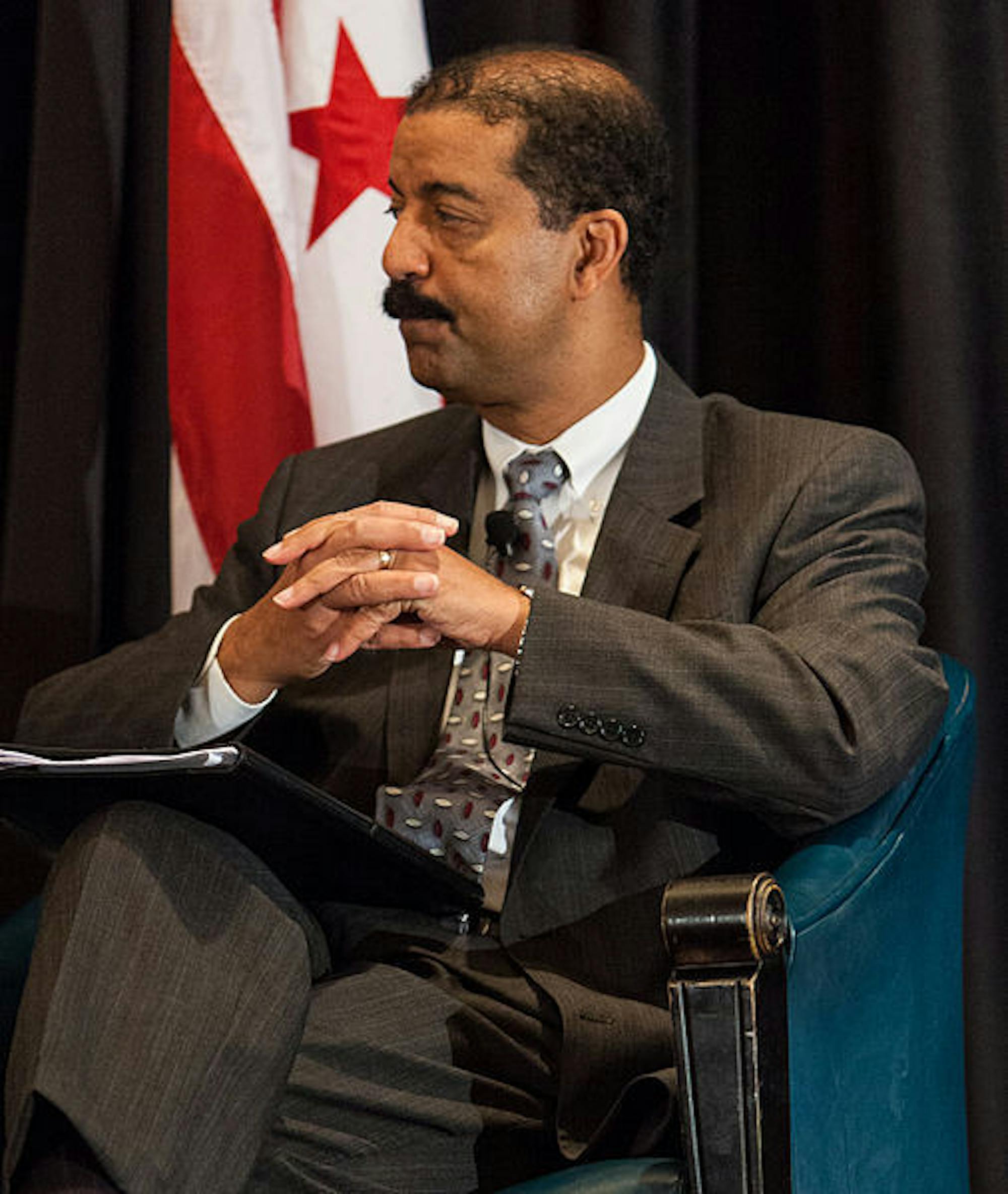The Honorable Eric T. Washington (A ’76) spoke Tuesday at the Jonathan M. Tisch College of Civic Life’s event "Black on the Bench: Diversity in the Judiciary." Washington served as the Chief Judge of the D.C. Court of Appeals from August 2005 to March 2017.
The lunch was part of Tisch College’s ongoing Civic Life Lunch series and was cosponsored by the Department of Drama and Dance, Tufts' Black Theater Troupe, the Africana Center and the Center for the Study of Race and Democracy.
The event was moderated by Domonique Johnson (LA ’10), program manager at the Africana Center and a graduate student in the Diversity and Inclusion Leadership program.
During the first half of the event, Washington addressed questions from Johnson about his time at Tufts and his early career inspirations.
“Boston was a very segregated city,” Washington said of the city in the early 1970s, elaborating that segregation at the time existed not only along racial, but also ethnic, educational and class lines.
He also described Tufts’ reaction to the civil rights movement at the time.
“This school was trying to do the right thing, but they weren’t ready," Washington said.
Washington said he attended Tufts in the years immediately following the 1969 founding of the Africana Center, then known as the Afro-American Center. He said that due to the emergence of prominent black lawyers and judges during the civil rights legal disputes of the preceding years, it was a heady time for young African-American students interested in law.
Washington noted figures such as Thurgood Marshall, who became the first African-American person to serve on the US Supreme Court in 1967, and Vernon Jordan, who became president of the National Urban League in 1971, as among his key inspirations as a young law student.
He also emphasized the efforts of municipal and state judges.
“There are more cases heard in [the] New York state court in a day than are heard in federal court in a year,” Washington noted.
In the second half of the event, Washington addressed questions from the audience covering a range of topics, including how institutions should define diversity, the place of technology in justice and judiciary issues including overuse of plea deals.
“Diversity has to include enough people to actually have diversity of experience within [each] group,” Washington said, adding that “diversity is not just pure numbers.”
Dr. Heather S. Nathans, chair of the Department of Drama and Dance, said the department had cosponsored the event as part of a collaboration with the and Tufts' Black Theater Troupe and New Repertory Theater, which had brought “Thurgood,” their show about the life of Thurgood Marshall, to Tufts on Feb. 3.
“One of the things that we do a lot of the times that we run new shows is we coordinate talkbacks,” Nathans told the Daily in an email. “This is just kind of an extended talkback in a way, because it’s connected to the themes that will be explored in the production.”
Caila Bowen, artistic director of the Tufts' Black Theater Troupe, explained that the troupe had also become involved in the event by collaborating with the Department of Drama and Dance to bring “Thurgood” to Tufts.
Bowen, a junior, told the Daily in an electronic message that the Civic Life Lunch was included as a “‘real world" component to the show.
“[The event] elucidates that the historical work is not ‘done’ and people that look like us have not only been doing this work for a long time but we are also still doing this work and will probably continue to do this work for a long, long time," Bowen wrote.
Tisch College hosts Eric T. Washington for conversation on diversity in the judiciary

Eric T. Washington is pictured on Dec. 3, 2012. (Wikimedia Commons)





